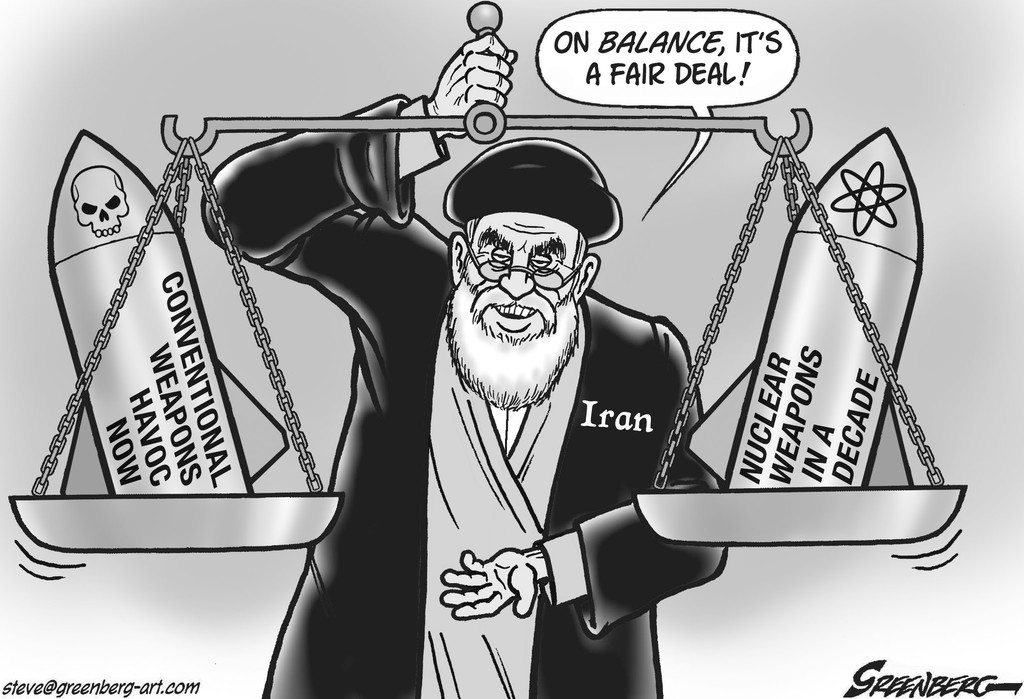How to ensure Congress nixes deal
Sometime between now and Sept. 17, Congress will have a chance to vote thumbs down on the P5+1 nuclear deal with Iran. Per legislation, it will have 60 days to act, counting from July 19, when the deal was turned over to Congress by the State Department. Unlike a treaty, which constitutionally requires a two-thirds vote of the Senate to be approved, the Iran deal is considered an executive agreement which usually does not receive congressional oversight. Only because of the Corker-Cordin bill does Congress even have a chance to register a no vote on the Iran deal.
For those of you wondering the difference between an executive agreement and a treaty, here’s the easy answer: It depends on what a president calls it.
Generally executive agreements between the United States and other countries have been short-term in nature, only tying up the administration that makes the agreement, but that is not a requirement. The Supreme Court has ruled more than once that executive agreements are part of the enumerated foreign policy powers of the president. However they never defined an executive agreement as opposed to a treaty.
The vote on the executive agreement per the Corker-Cardin bill is the only way to kill the P5+1 deal — sort of. You see, while Congress can vote against the deal, its actions will only ensure that the sanctions imposed by Congress on Iran remain in place; meanwhile, the Obama administration has introduced a resolution in the United Nation Security Council to lift the sanctions that the U.N. imposed on Iran even before a Congressional vote, making any congressional action less meaningful.
While the sanctions were imposed by the United States can only be lifted by Congress, the U.N. Security Council imposed many of the most damaging ones, and only the Council can lift those sanctions.
When Congress votes on the Iran deal it will need more than a majority; votes against the deal will need a two-thirds majority in each house to override a promised presidential veto. While it will be easy do get a majority down vote in both houses, the two-thirds vote will be tough.

 44.0°,
Mostly Cloudy
44.0°,
Mostly Cloudy 




